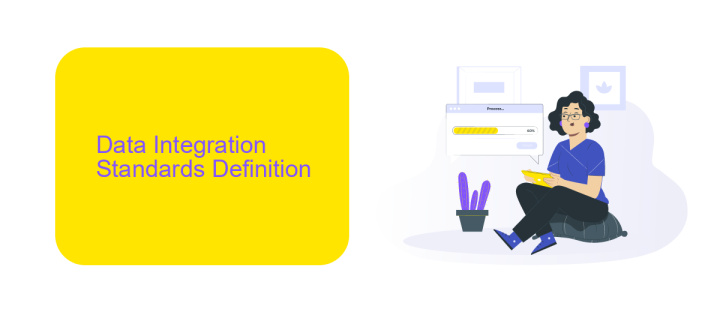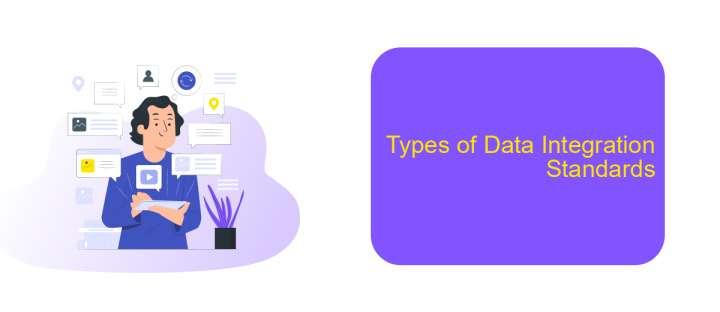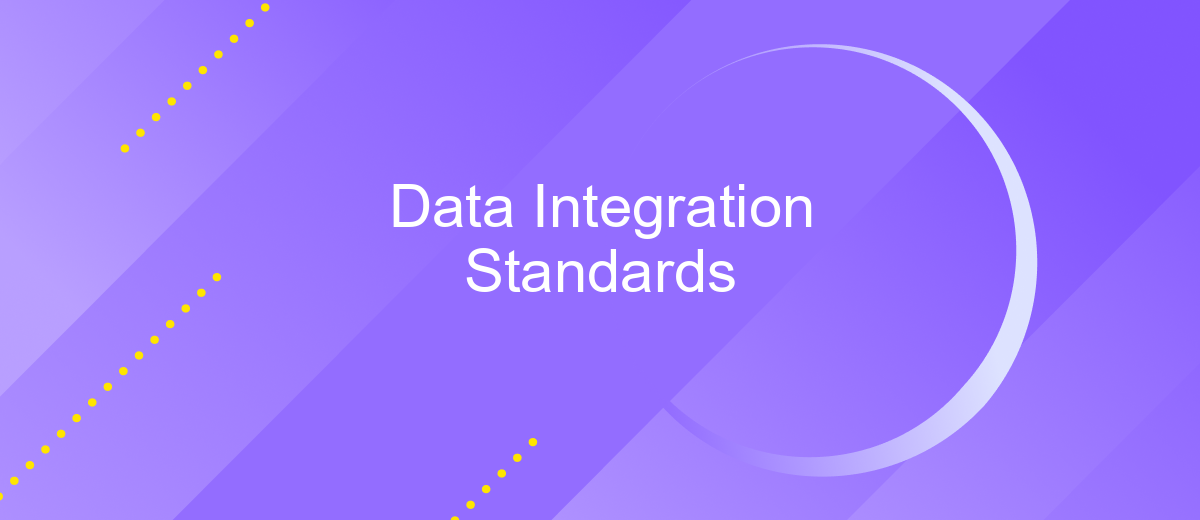Data Integration Standards
In today's data-driven world, seamless data integration is crucial for organizations striving to harness the full potential of their information assets. Data integration standards play a vital role in ensuring compatibility, consistency, and efficiency across diverse systems and platforms. This article explores the key standards that guide effective data integration, helping businesses streamline processes and make informed decisions.
Introduction
Data integration is a critical component in modern business operations, enabling seamless communication between disparate systems and enhancing overall efficiency. As organizations increasingly rely on diverse data sources, the need for standardized integration practices becomes paramount. These standards ensure data consistency, accuracy, and security, facilitating better decision-making and operational effectiveness.
- Ensures data consistency across platforms
- Enhances data accuracy and reliability
- Improves data security and compliance
- Facilitates seamless data communication
One of the essential tools for achieving effective data integration is ApiX-Drive. This service simplifies the process of connecting various applications and automating workflows without requiring extensive technical knowledge. By leveraging such tools, businesses can streamline their data operations, reduce manual errors, and focus on strategic objectives. As the landscape of data integration continues to evolve, adhering to established standards and utilizing advanced integration services like ApiX-Drive will be crucial for maintaining competitive advantage.
Data Integration Standards Definition

Data integration standards are essential guidelines and protocols that ensure the seamless exchange, transformation, and consolidation of data from various sources. These standards establish a common framework that enables different systems to communicate effectively, ensuring data consistency, accuracy, and accessibility. By adhering to these standards, organizations can streamline their data workflows, reduce redundancy, and enhance data quality, thereby supporting more informed decision-making processes.
One practical approach to implementing data integration standards is through the use of specialized integration services like ApiX-Drive. ApiX-Drive provides a user-friendly platform that simplifies the integration process, allowing users to connect various applications and automate data transfers without extensive technical knowledge. By leveraging such services, businesses can achieve efficient data integration, ensuring that data from disparate sources is harmonized and readily available for analysis and reporting. This not only saves time but also minimizes the risk of errors, enhancing overall operational efficiency.
Benefits of Data Integration Standards

Data integration standards play a crucial role in ensuring seamless communication and data exchange between different systems. By adhering to these standards, organizations can achieve higher efficiency and accuracy in their data management processes.
- Interoperability: Standards facilitate the seamless interaction between disparate systems, enabling them to work together efficiently.
- Data Quality: Consistent data formats and protocols ensure high data quality and reduce errors during data exchange.
- Cost Efficiency: By using standardized approaches, organizations can minimize the costs associated with custom integrations and maintenance.
- Scalability: Standards provide a scalable framework that can easily accommodate growing data volumes and new data sources.
- Security: Standardized protocols enhance data security by ensuring consistent and robust security measures across systems.
Services like ApiX-Drive simplify the process of setting up data integrations by providing a user-friendly platform that adheres to these standards. This not only accelerates the integration process but also ensures that the data exchanged is reliable and secure. Overall, data integration standards are essential for optimizing data workflows and achieving organizational goals efficiently.
Types of Data Integration Standards

Data integration standards are critical for ensuring seamless communication and data exchange between disparate systems. These standards help organizations maintain data consistency, improve interoperability, and reduce integration costs. There are various types of data integration standards that cater to different aspects of data management and exchange.
One common type is syntactic standards, which define the structure and format of data. These standards ensure that data is represented in a consistent manner, making it easier to parse and process. Another important type is semantic standards, which focus on the meaning and context of data. These standards help in understanding and interpreting data correctly across different systems.
- Syntactic Standards: XML, JSON, CSV
- Semantic Standards: RDF, OWL, SKOS
- Communication Protocols: REST, SOAP, MQTT
Additionally, there are integration platforms like ApiX-Drive that facilitate the implementation of these standards. ApiX-Drive offers a user-friendly interface for setting up and managing data integrations, making it easier for businesses to connect various applications and services without extensive technical expertise.
Best Practices for Developing Data Integration Standards
When developing data integration standards, it is crucial to prioritize data quality and consistency. Ensure that all data sources adhere to a common format and structure to facilitate seamless integration. Implement validation rules to verify data accuracy and completeness before it enters the system. Regular audits and monitoring can help identify and rectify discrepancies, maintaining the integrity of the integrated data.
Another best practice is to leverage reliable integration tools and services, such as ApiX-Drive, which streamline the process of connecting various data sources. ApiX-Drive offers a user-friendly interface and robust features that simplify the configuration and management of integrations. By automating data transfers and synchronizations, these tools minimize manual intervention and reduce the risk of errors. Additionally, ensure that your integration standards include comprehensive documentation and training for users to promote consistent and effective data handling practices across the organization.
FAQ
What are Data Integration Standards?
Why are Data Integration Standards important?
How do Data Integration Standards impact data quality?
What challenges can arise without Data Integration Standards?
How can businesses implement Data Integration Standards effectively?
Routine tasks take a lot of time from employees? Do they burn out, do not have enough working day for the main duties and important things? Do you understand that the only way out of this situation in modern realities is automation? Try Apix-Drive for free and make sure that the online connector in 5 minutes of setting up integration will remove a significant part of the routine from your life and free up time for you and your employees.

